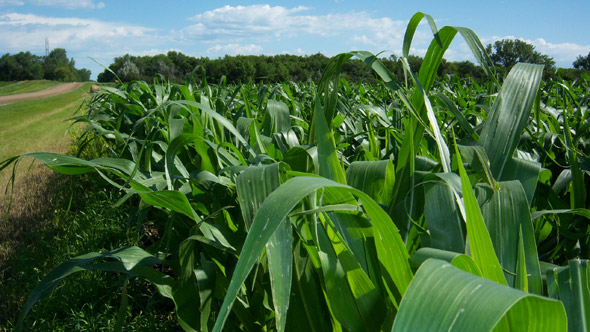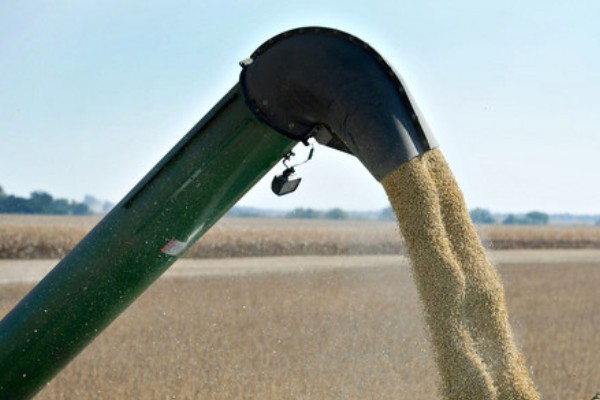Commodities Curse: Can Having Too Much Be a Bad Thing?
Home to 22% of the world´s arable land, Brazil´s success has been largely linked domestically to feeding 200 million citizens and internationally to the growing price of commodities. But could its dependence on commodities be a bad thing?

The FAO´s Food Price Index has risen over 100% in just over 10 years – from 90 in 2000 to 216 in September 2012 – and whilst the Sugar Index fell 13 points between August and September 2012 it has risen 168 points since the year 2000, figures that point to an infinite increase in food prices.
Home to 22% of the world´s arable land, Brazil´s success to date has been largely linked domestically to feeding and clothing 200 million citizens and internationally to the growing price of commodities throughout the world, but whilst most Brazilian businesses see their domestic market as infinite and can´t envisage a huge drop in the price of soft commodities like corn and soya, or a decline in the need for hard commodities such as iron ore or crude oil, Brazil´s dependence on the commodities market is leading international economists to ask if having too much can actually be a bad thing.
A report published on BBC UK’s website last year stated that “Food prices around the world have been rising sharply and Oxfam has warned that the trend will continue over the next 20 years” whilst the FAO´s Food Price Index has risen over 100% in just over 10 years – from 90 in 2000 to 216 in September 2012 – and whilst the Sugar Index fell 13 points between August and September 2012 it has risen 168 points since the year 2000, figures that point to an infinite increase in food prices.
José Roberto Bortolozzo, founder of the Central Agrícola Nova Era (New Age Agricultural Centre, or CANEL), expressed his optimism for the future of Brazilian agricultural commodities saying “The agriculture business for soya and corn is going to grow in the future. The world stock is diminishing and the world´s consumption – on the other hand – is being increased”. He confirmed that Brazil is ready to further capitalize on this as “the United States cannot expand its agricultural soils”, adding that in the little-known Brazilian state of Piaui alone “we are just profiting from 12% of our agricultural capability which is relatively very low” but at the same time Bortolozzo explains that all of the commodities he trades, namely “soya, corn, cotton, eucalyptus, and limestone mining” are “profitable”. In a recent interview with Joe Valle, Congressman and Founder of the organic farm Fazenda Malunga he agreed that this bright future was also true for Brazil´s Federal District stating that “although the Federal District is small we have a lot of technology and our bean productivity level is bigger than the world´s productivity levels”. And proving the worth of Brazil´s ever-increasing domestic market he added “I don’t have products to export. I sell everything here in Brasília”.
According to the webiste af.reuters, in terms of soft commodities Brazil has “the largest commercial cattle herd on the planet”, is the world´s largest producer and exporter of sugar and coffee and the world´s largest exporter of sugar-based ethanol, poultry meat, orange juice and tobacco, and as “the no. 2 soybean producer and exporter will likely overtake the United States as the leading producer of the oilseed this year.”
So how can having so much possibly be seen as negative? Economists talk about a drop in the price of commodities and environmentalists warn of the problems caused by El Niño but according to the website in.reuters, even el Niño favours Brazil as although “the United States reels from the worst drought in 56 years”, in Brazil “the world’s largest coffee producer, the crop faces a smaller risk of frost this year due to the likelihood of an El Niño, which will bring higher-than-normal rain and moisture to the coffee belt.”

Brazil has however had first-hand experience of natural phenomena spoiling its crops and consequently damaging its economy. Two decades ago Brazil was the world´s second largest producer of cocoa but according to reuters.com it now sits in sixth place as “witch’s broom disease devastated its plantations, slashing output by more than half.”
Moreover economists, such as Neil Shearing, an emerging markets economist at London-base Capital Economics Ltd., in an article published on bloomberg’s website, are warning that “commodity price swings can be volatile, making resource-rich economies vulnerable, and efforts devoted to commodities can stifle growth elsewhere.”
Brazil is nevertheless rich in both soft and hard commodities with huge off-shore oil exploration paying dividends with “the biggest oil find in the Americas in three decades” made in 2007. Whilst President Dilma, in the campaign that brought her to the Presidency, vowed to eliminate poverty within Brazil through the profits gained from such a find, Professor Anthony Pereira, Director of the Brazil Institute at King’s College, London, informed bloomberg.com that if Brazil could “use the revenue relatively rationally, and invest it for long term, the prospects would be pretty good,” adding that “the resource curse isn’t inevitable.”
A further problem is that being a large commodities exporter can also drive the value of a country´s currency up, an occurrence referred to as “Dutch disease”, making its manufacturing sector uncompetitive, as Brazil saw this year when the Real surged against the US dollar peaking at 1.53. As such Brazil is taking steps to diversify its industry with, according to economist.com its “giant national development bank, the BNDES,” stimulating “innovation by providing seed money for ventures in biotechnology, pharmaceuticals and information technology”, and initiatives such as the “Bigger Brazil Plan” offering “tax exemptions of 20% to the industries of clothing, shoemaking, furniture and software” and acting as a “pilot project” to be rolled out to other industries at the end of 2012 according to forbes’ website.
So whilst it seems that Brazil can keep the commodities curse at bay as the worldwide population continues to grow and needs to be fed, environmentalists warn of a depletion of resources in the Amazon region. In his book The Plundered Planet, as reviewed on the website Guardian UK, author and economist Paul Collier declares that “Brazil has shown itself unable to exploit the rainforest in a way fair to Brazilians of today or tomorrow, let alone the rest of us.” Whilst talking to Reuters, Marina Silva, a former Environment Minister and a pioneer of Brazil’s green movement said of the Rouseff administration “this is a government willing to sacrifice the resources for thousands of years in exchange for a few decades of profit”. Although President Dilma did partially veto some parts of the controversial Forest Code – aimed at protecting the Amazon reason – this June, she did not go far enough, according to Greenpeace, missing “a golden opportunity to prove that economic development and environmental protection can go hand in hand.”
On the other side, however Brazil is making a commitment to renewable energies, with a report from the International Energy Agency published on the webiste oilprice.com highlighting that “Brazil will add 32 gigawatts of renewable energy to its power grid within the next five years. The move will put Brazil tied for fourth place with Germany in renewable energy investment” and according to miamiherald.com, Brazil is developing an “eco-friendly economy” whilst at the same time “amassing fortunes by developing the most bio fuel-based infrastructure in the world from sugarcane-based ethanol.” At home it has just been announced via all news agencies, including Reuters, that “Brazil will raise the required amount of ethanol blended into gasoline to 25 percent from the current 20 percent by the end of June next year (2013)”, and if this trend continues instead of becoming a curse Brazil´s commodities could be its saving grace as alongside all its traditional export products it increases its exports – and the exchange of knowledge – in green energy, possibly proving after all the more is in fact better.